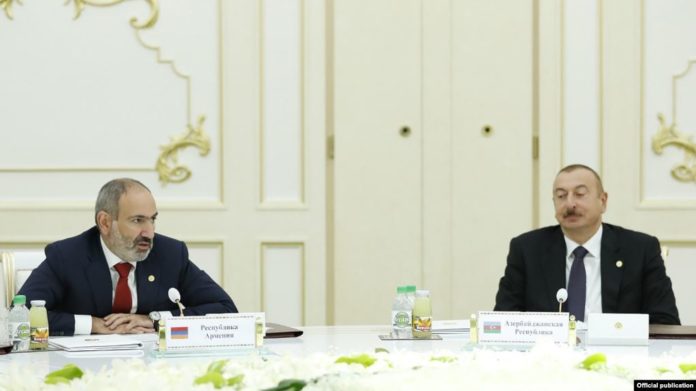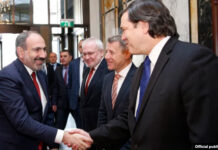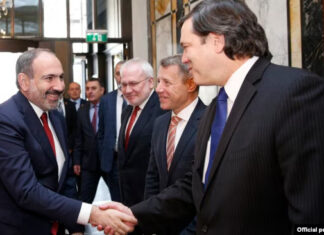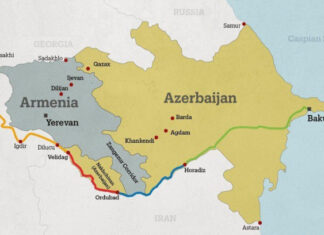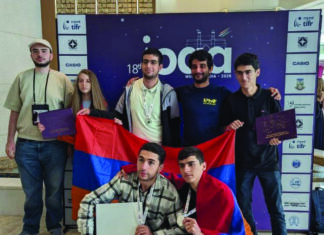ASHGABAT, Turkmenistan (RFE/RL) — Azerbaijani President Ilham Aliyev and Armenian Prime Minister Nikol Pashinyan discussed the Nagorno-Karabakh conflict after trading barbs during a summit of former Soviet republics held in Turkmenistan’s capital Ashgabat on Friday, October 11.
Aliyev started the tense verbal exchange at a plenary session of the summit of the Commonwealth of Independent States (CIS) by accusing Armenia of “glorifying fascists.” He noted that the former Armenian government erected in Yerevan the statue of Garegin Nzhdeh, an Armenian nationalist statesman who had fought against the Bolsheviks and later collaborated with Nazi Germany.
Pashinyan responded by accusing Aliyev of distorting the history of Armenia and the Second World War.
“Ilham Heydarovich’s speech leaves one with a sense that [Adolf] Hitler played a secondary role and that the Nazi movement was led by Garegin Nzhdeh,” he said. “Yet the truth is that Garegin Nzhdeh fought against Turkish occupation of Armenia, against the genocide of Armenians and … also commanded, together with many Russian officers, a very important section of the frontline during the Armenian-Turkish war in 1918.”
“I think it’s inappropriate to use this [CIS] format for distorting history and adding some tension to the atmosphere of this important meeting,” added Pashinyan.
Despite the public recriminations, Pashinyan and Aliyev spoke with each other at a dinner in Ashgabat hosted by Turkmenistan’s President Gurbanguly Berdymuhamedov for fellow CIS leaders later in the day.



